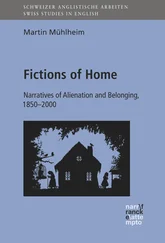"Where's the law?" says I.
Says he, "Belief and the law, you're saying to me belief and the law, they cannot be tessellated."
"Friendly relations, it makes for friends." says I.
"Well," says the window-shade man, "extensity and intensity, there's also always all that, isn't there?"
"Scum-sucking swine," says I. "Grommetless dog."
"Not grommetless, sir!" asserts the window-shade man. "Never been proved grommetless!" asserts the window-shade man.
"Point," says I. "Therefore," says I, "speak not to me of gussets," says I.
"But see you, don't you see you," says the window-shade man, calmer not by half but by much, "that are we not, in this matter, made claimants, then, the pair of us, on common but non-relational ground?"
"Good," says I to the window-shade man.
"Which makes this mine," says I to the window-shade man, leaving the window shade to keep to its place in the hands of the window-shade man and plucking the fascia from the face of the window-shade man, no more himself a window-shade man than I a shopper in want of even infrequent dark.
THE GIRL IN LOVE LEANT her head away from him. The girl in love let her head come to rest against the head of the young woman sitting to the other side of herself. The man loved this. The man did not love the girl in love. What the man loved was that the girl in love was doing this thing she was doing and how the girl in love did it, letting her head lean ever so lightly to the side to let it come to rest against the side of the head of the young woman sitting to the other side of the girl in love — and sighing — oh, sighing — and turning one of the rings on her fingers and smiling into the amazed space in front of her and murmuring madly to the other young women — the girl in love's friends, the girl in love's so very, she said, cherished friends — madly murmuring to them of love — oh, love, love!
Were they to be married?
They were to be married.
Truly?
"Yes, of course — truly," the man said.
But when, when?
Soon — possibly soon — immediately upon their arrival in the great nation of America.
America?
Yes, America.
The United States?
Yes, yes, isn't it wonderful, the United States!
Oh, love, love.
But the man did not love the girl in love. The man loved no one, had loved no one, would love no one, though the man loved, would love, without limit, without reservation, irrevocably, indelibly, this gesture of the girl in love's, this occasion of the gesture's occurrence, of all the infinitely divisible occurrences swarming furiously upon the moment — the phosphorescence in the vast kitchen, the very word phosphorescence — to contrive to make the occurrence occur and to produce upon the man the effect of a thing for the man to love.
But not a person.
Never a person.
The girl in love leant her head away from the man. Something in a pot was heating on the stove. Was it coffee? Ah, no, it was not coffee. What, then, if not coffee? Oh, special, something special — wait and see, oh just you wait and see, you devil you.
Oh yes, to see, to see, to hear, to hear — the women madly murmuring, these wondrously wonderful women all murmuring madly into the amazed space of the vast kitchen — the girl in love with her head leant away from the man so that her head lay against the side of the head of the large woman who sat to the other side of the girl in love, if indeed the girl in love was a girl in love, or was even a girl.
The great éclair.
They had brought it with them — so festive, so very festive — a pastry, the pastry — in celebration of this very festivity — a celebration of love — oh, love, love.
Dango-dango, a dango-dango.
It was called this, the pastry was actually called this — called, good God, a dango-dango — did you ever? But how grand, how so very grand — that such a way of speaking of a thing could possibly exist in a world where people had to speak of things — well, a dango-dango indeed and not just a giant éclair.
The girl in love leaned her head away from the man in order that the girl in love might bring her head to rest against the head of the large woman sitting to the other side of the girl in love, her eyes glistening, their eyes glistening, everyone's eyes glistening — the strange light making everything it fell upon — if the man cared to look at what the light fell upon, if only the man cared to get a good close look at it all — glisten.
Something was heating on the stove.
There was a pot of something heating on the stove.
The pot, the pot, wasn't it as well, didn't it too, wasn't it also glistening ever so strangely? — as if a radiance had been conceived in the very idea of its being a pot in which something was heating gently heating on a stove.
Well, a phosphor, then.
Chairs had been moved to the table. A bench had been brought up from a wall and positioned to one side of the table. This was where the girl in love sat with the large-bodied friend whose head it was the girl in love was resting her head against — on the bench drawn up to the table and positioned to the one side of the table — the man seated there at the table in the position, the post, the post, of importance. There was music, wasn't there? — voices, the voices of men, men's voices, as in a solemn chanting from somewhere elsewhere, audible to the man in this room but believed by him to issue from some other room, the source, the man concluded, not here but elsewhere, somewhere elsewhere. But where elsewhere was there? How many rooms in all would there be here, how many? Oh, there was so much the man did not know — could not know, could not have imagined it would have mattered for him to know, would never, when it came to that, ever come, come ever to know. Well, the man was not exactly a dolt, was he? I mean, he understood the one word meant wine, didn't it? — because, after all, it was a bottle of wine, wasn't it? — but the other word, what about this other word, what on earth did this other word mean? — holy or health-giving, sacred, sacrosanct, sacerdotal, not unclean?
They sat at the table, those who were just now sitting. And who were these who were just now sitting? Why, the man, of course. The man was sitting. The girl in love, she was sitting at the table. And to the girl in love's other side, to the other side of the girl in love there was sitting another girl, another young lady, another large-, even larger-bodied, woman — the heads of the two very large women touching in such a manner as to tear at the man's heart, such as the man's heart was present in him to be torn at. And the foil, what about the foil, what had happened to the foil? Had the foil been torn? It was difficult for anyone to see, wasn't it? Or was seeing, was seeing anything, was really seeing any of these things, was it just a difficulty only for the man? The light in here — well, it was like a phosphor, wasn't it? The light was phosphorous, phosphorescent — a weak pulsing, a kind of throbbing pulsing, a pulsation that was deeply luminescent.
Ah, luminescent, luminescence.
The man understood he would one day tell of all this eventfulness, tell of the details constituting the eventfulness, grouping them together for the entertainment of all comers, and if no one came, if no one in the world ever came to hear the man say luminescent, then no matter, no matter, then the man would group together what he would group together only for himself, so that, yes, of course, of course — this long-ago eventfulness would prove to be an entertainment if only for himself — luminescent, a luminescence — I tell you, these words, the very abundance of them, how superb. Dim? No, not dim, never dim, but phosphorescent perhaps, luminescent perhaps — like a glimmering, yes, a glimmering. The light, it was like a glimmering, wasn't it? The light — ah, it fairly glinted, didn't it? It made things glint. It gave things to glint. So that things — glinted. So that everything — well, it glinted. So that there was this bounty of glintings in this domestic vastness — so that in the very vastation of the amazed space there was a definite, well, an indefinite distribution of hazy glintings — the pot, the forks and spoons, the spoons and forks, the bottle of wine, the wine bottle, the water tumblers for the wine, the knife, the immense the ridiculous, the ridiculously too severe — but quaint, yes, quaint — kitchen knife. For example, for further example, the patina of the table, for even further example — another glinting, such a glinting — the man would say the table, that the table had been a patinated table, this, uh, well, this refectory table, it had shone, by Jupiter, had it not? — with a glinting — the lovely young ladies having seated him at it in such a manner as to situate the man in the one important position at the table — honoring the man, yes, for was not the man being honored? — while the two of them, while two of the large women, while these were the large women who were the ones who were sitting side by side on the side of the table where the bench had been placed, the bench having been drawn up to the table from the wall where the bench was kept, the heads of the large women touching ever so, well, so touchingly — while wasn't there yet another woman, a third woman? — while this largest-bodied woman of the three large-bodied women, while this other one, that one, while she bustled all about in the amazed space, fussing all about with this sort of magisterially fussy bustling largest-bodied womanly air of hers — ah, seeing to things — seeing to the wine and to the water tumblers the wine would be poured into, seeing to the pastry and to the queer knife that would cut the pastry, that would slice the pastry, that would be stuck point-first down into the heart of the pastry to divide the wounded pastry into certain unimprovable portions of pastry, seeing to the forks and to the dishes and to the spoons and to the marvelously crude napkins and to the heavy Tuscan cups, was it, or to the heavy Norman cups, was it, that had been distributed to various sites on the table to accept into them whatever it was, the man decided, that was heating gently gently heating on the stove.
Читать дальше











